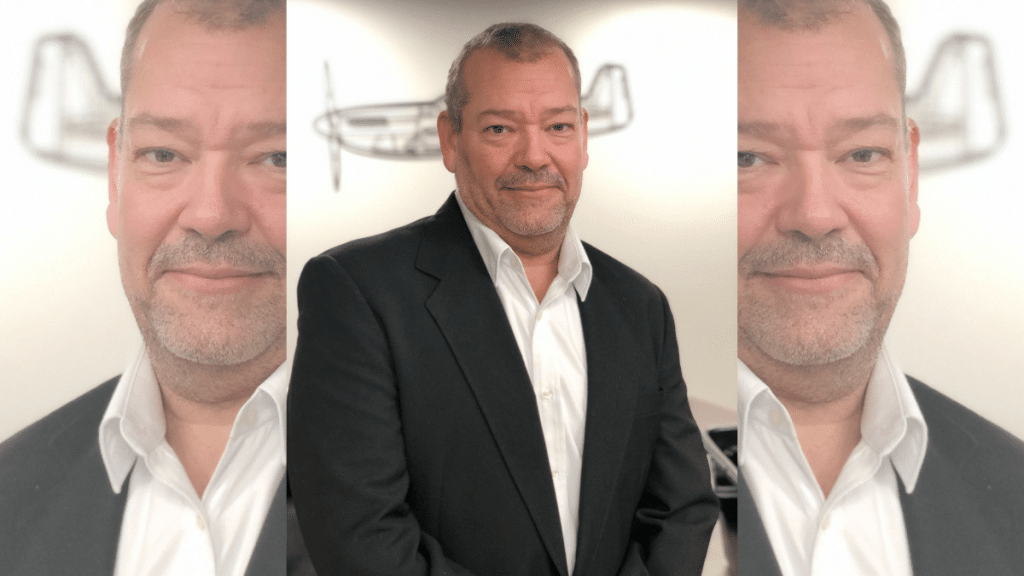Roberto Puerta is a name synonymous with innovation, leadership, and dedication in the aviation field. With more than 25 years of experience, he has made significant contributions to aviation, particularly in the realms of airworthiness, pilot training, and technological advancement. His career is a testament to his passion, perseverance, and expertise, and his impact on the aviation industry has reached global scales.
A Passion for Aviation from an Early Age
Roberto’s journey into aviation began long before he became a household name in the industry. From a young age, he was fascinated by mechanics and airplanes. Growing up in a family of mechanics and pilots, Roberto was naturally drawn to aircraft engines and systems. His childhood curiosity led him to disassemble and reassemble electronic and mechanical gadgets, a practice that eventually fueled his decision to pursue a career in aviation.
After completing high school, Roberto took a keen interest in mechanics, electricity, welding, and metalworking. He went on to earn an associate degree in automotive maintenance, but his passion for flying led him to pursue a Private Pilot License in Valencia, Venezuela, in 1995. From there, Roberto’s career in aviation took off. He started working as a mechanic and helper for ultralight and experimental airplanes, marking the beginning of a career that would shape the future of aviation training in Latin America.
Innovating Aviation Education
One of Roberto Puerta’s most significant achievements came during his time as the Director of the Escuela de Aviación Pedro J. Puerta in Venezuela. As the head of the school, he sought to revolutionize aviation education by introducing cutting-edge technologies. Under his leadership, the school became the first in Latin America to incorporate a state-of-the-art synthetic flight simulator based on the Garmin 1000, which is the standard interface in most planes in the world, a groundbreaking advancement for both pilots and students generating so much growth in the aviation industry of Venezuela.
The journey to bring these technologies to Venezuela was not without its challenges. At the time, the system Garmin 1000 was virtually unknown in Latin America, and obtaining the necessary information to implement the system was difficult. Without the luxury of the internet, Roberto relied on technical publications and books to educate himself. He worked tirelessly to understand the intricacies of the Garmin 1000 system, and through his efforts, he became the region’s foremost expert on the technology.
A key moment in this process was the acquisition of a new Cessna C172S with Garmin 1000 technology, the first of its kind in Venezuela. Roberto’s deep technical expertise allowed him to navigate the complex integration of digital and analog technologies, ensuring the plane met both U.S. and Venezuelan airworthiness regulations. His hard work paid off when he became the first certified Garmin 1000 technician in Latin America, marking a milestone in both his career and the region’s aviation landscape.
A Leader in Airworthiness and Global Aviation Standards
Roberto’s expertise in the field of airworthiness is unmatched. Drawing from his experience as a commercial pilot, airworthiness technician, and maintenance shop owner, he has played a pivotal role in shaping airworthiness protocols at Jet Air, Inc. His meticulous attention to detail ensures that all procedures are efficient and safe, allowing the company to provide top-notch service to its clients.
A key part of Roberto’s role involves overseeing the import and export of aircraft between the United States and Latin America, navigating the complex regulatory environments in both regions. His deep understanding of both U.S. and Venezuelan aviation regulations, along with his hands-on experience in aircraft maintenance, has made him a sought-after expert in the field. His contributions have helped establish Jet Air, Inc. as a leader in the global aviation sector.
Overcoming Challenges and Navigating Change
Throughout his career, Roberto has faced a variety of challenges, from navigating regulatory hurdles to adapting to new technologies. One of the biggest challenges he encountered was during the early days of implementing the Garmin 1000 technology in Venezuela. Not only was this technology new to the region, but it also required significant technical expertise to integrate it with existing aircraft systems and ensure compliance with Venezuelan aviation regulations.
The onset of the COVID-19 pandemic also presented significant challenges to the aviation industry. During this difficult time, Roberto’s attention to detail and leadership were essential in ensuring that Jet Air, Inc. maintained safe operations while complying with new health protocols. His work to adapt maintenance procedures and incorporate new safety measures helped the company continue operations through the pandemic, demonstrating his resilience and commitment to aviation safety.
A Vision for the Future of Aviation
Looking ahead, Roberto sees the future of aviation as an industry that must continue to evolve, especially in terms of safety and airworthiness standards. He believes that the key to the future lies in the continuous training of aviation personnel, as well as the integration of new technologies that enhance flight safety and operational efficiency.
For Roberto, airworthiness is not just a technical requirement—it’s a matter of life and death. He is dedicated to ensuring that the aviation community remains vigilant and prepared for any eventuality.
